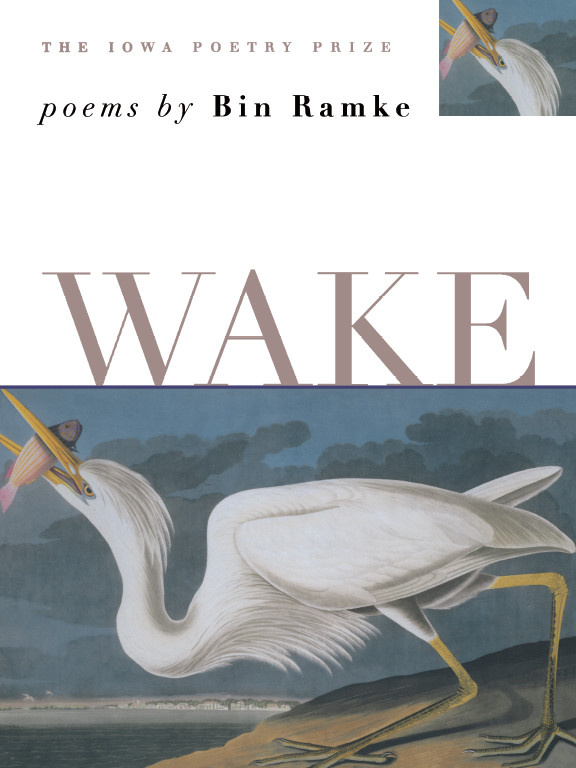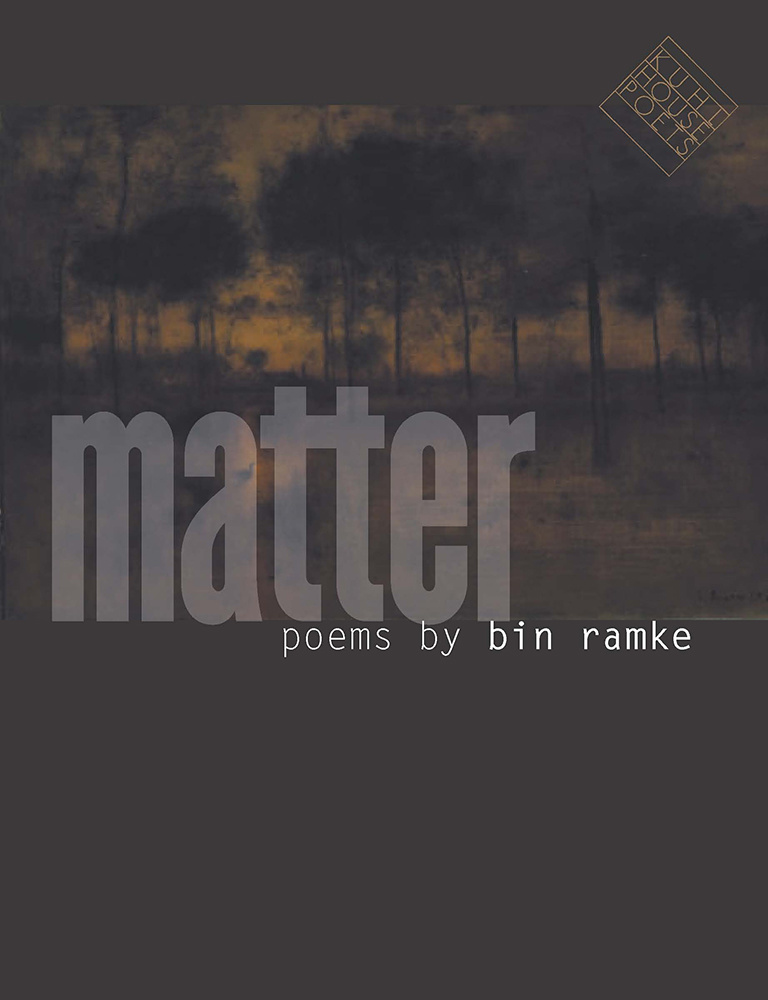Massacre of the Innocents is the work of a secular poet who admires the basic texts—the angry qualities of fairytales equally along with the humorous virtues of sacred scriptures. Speaking with the voice of mature accomplishments, Ramke's poems do not struggle for their words but release them from a near-inexhaustible source.
As Ramke has said, “Poems are like children and have minds and manners of their own, luckily beyond the control of parents and poets.” These poems talk back—and they talk to each other. By stripping away the distractions of received meaning from the words he uses, Ramke makes necessary connections between reader and poem that can freshen meaning—make it new—as is often claimed for poetry but seldom achieved so well as in his work.
“Ramke tilts the truth about as far as it will go without having sense topple and slide off it completely. But the glory of these poems is that meaning, passion, truth are never quite abandoned—they flit under the surface like exotic species of fish we barely glimpse as they swerve away from us, again and again, heading for the bottom.”—The Director
“Threaded through with the slippage between angles and angels, translating the lush vacuum of both the empirical and the sublime, these poems move winningly between science and fable.”—Harvard Review
“Within the circuits of a dark eloquence, Bin Ramke has found a way to locate a self within the bonds of history and in so doing has broken those bonds into a new 'conspiracy of dazzle.' If knowledge is form—and it is—here is a poetry that everywhere shows us what it knows and leads us into a stunned gratitude. There is always a massacre of the innocents, and there is always the possibility of redemption. This book marries sacrifice to celebration, ritual to wisdom, and the imagination to its greatest ally, truth.”—Ann Lauterbach
“By his fifth book, Ramke has indeed perfected…a method? No, that term is too methodical for the mythos of these fresh, shapely poems entirely calibrated to slake our age's appetite for the disjunct, the estranged, the nonlinear. Autonomous and indeed so distinct here is the note of heartbreak, lamentations of a man speaking out of a solitude into a solecism—a man learned, lively, even loving, who finds himself (or loses himself) in the labyrinths of our history, our institutions, our entertainment, ruefully protesting his capacity ('some is my fault, some my reward') but not so much speaking up as sideways, an oblique utterance of contention; as he says, 'as if memory might matter.' Ramke's does.”—Richard Howard
Matters Of Time
1
My first date in New Orleans,
I do not remember the girl
I remember her mother, small
in the living room watching
an old movie. I felt for
the first time a despair,
the gray of television, the wait
for a daughter's safe return.
2
Knowing where to cut the joint
to remove the leg, and the angle
to slice through meat, these
elemental terrors of holidays.
The herbs fondly growing through the summer.
3
Winter when the snow conspires
to enter my house: the roof
makes little dams of ice, the trickle
of snow melting in the sunlight
stains the walls on its way
to my last good carpet. Winter
and the sound of the stain
growing underfoot.
4
Relics of summer, the Nazis
meeting on the lawn brought
folding chairs and beer and children.
Summer, and the racists march
down the littering paths
of the park: they sing
to each other of perfect weather
in the world to come.
5
In my childhood the proportion of anger
was the same as now, the small birds fell
as dead from the trees as regularly. But
the smell of the poisoned river was strong
and the curling fumes rose with impunity
while the local factory churned in the night
its own bad dream.
6
God eats at home, alone,
7
listening to the radio, staring
out His kitchen window remembering
the time before the breaking
of symmetry, the time of
vacuum genesis.
8
The shy engineer stares into his own palm
startled by the star-shaped nexus
of lines, wrinkles in the skin,
another kind of beauty.



